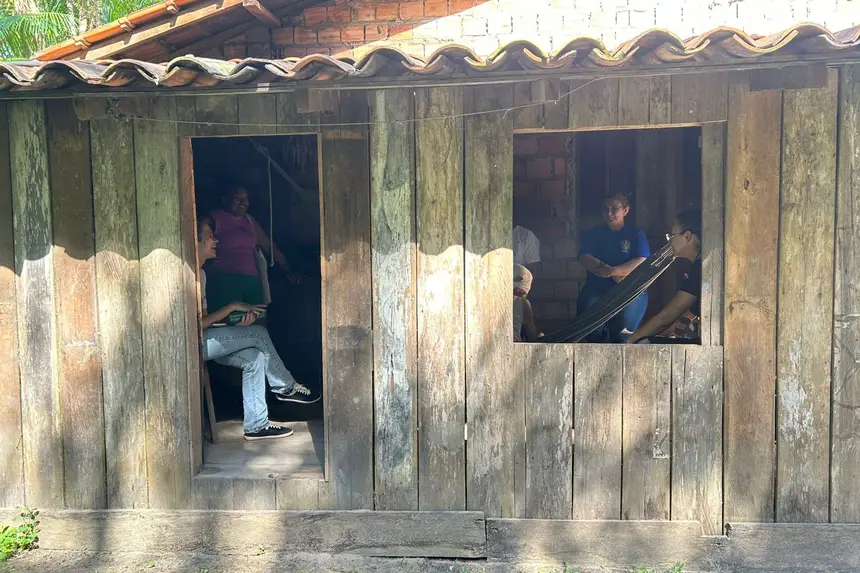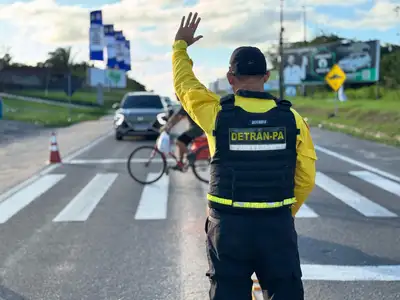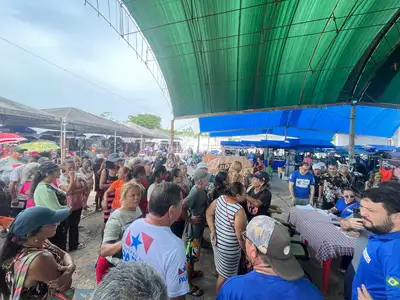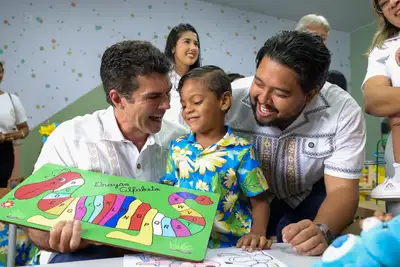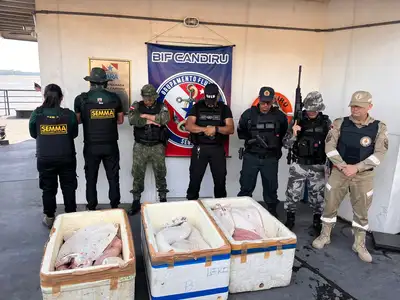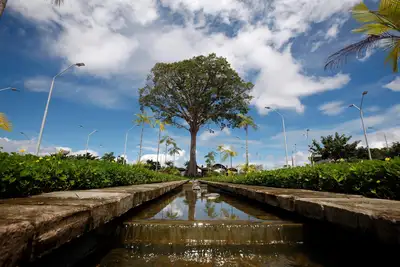Health throughout Pará strengthens assistance in quilombola territories
Partnership between Sespa, SEIRDH, universities, and institutions brings specialized care to communities in Moju as part of the action calendar aimed at quilombola territories in 2025
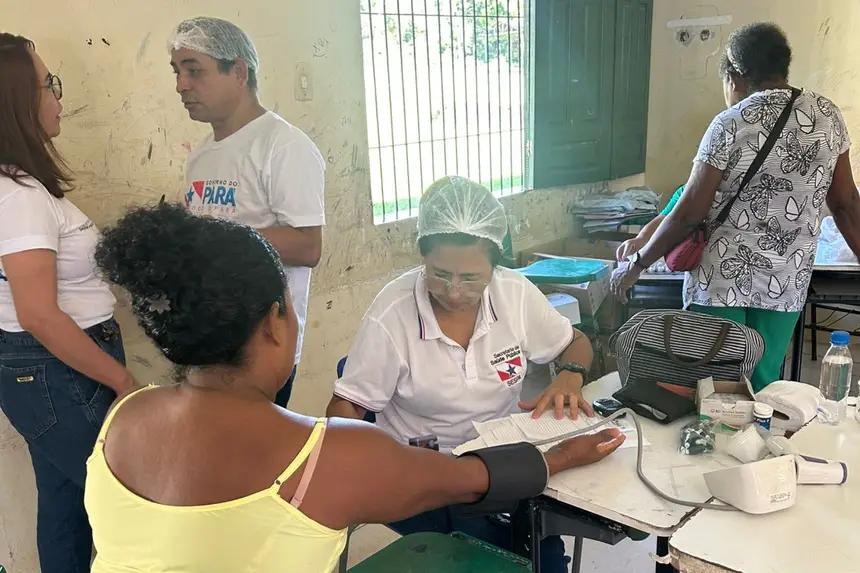
With the commitment to expand access to health in an inclusive manner and respecting the traditions of the people of Pará, the State Department of Public Health (Sespa) is carrying out another stage of the program "Health throughout Pará." This time, the actions focus on quilombola communities in the municipality of Moju, in the northeastern region of the state.
The initiative is part of the action calendar for 2025, developed in compliance with the commitment term signed in November 2024 between Sespa and the State Department of Racial Equality and Human Rights (SEIRDH), through the Management of Quilombola Rights. The proposal is to guarantee medical care and educational actions focused on equity, built with the active participation of local leaders.
The state coordinator of Indigenous Health and Traditional Populations (CESIPT), Tatiany Peralta, emphasized the importance of the union between public power, universities, and the sensitive listening of the community.
"It is with great satisfaction that CESIPT, in partnership with Sespa, CIIR, and the UFPA laboratory, participates in this important health action in the quilombola territory of Moju. We are here to ensure access to quality services, respecting the culture, knowledge, and needs of this community. This action includes medical care, oral health guidance, regulation, specialized exams, and qualified listening, with the technical-scientific support of the university. This union between the State, university, and community is essential to promote a more inclusive and equitable health care."
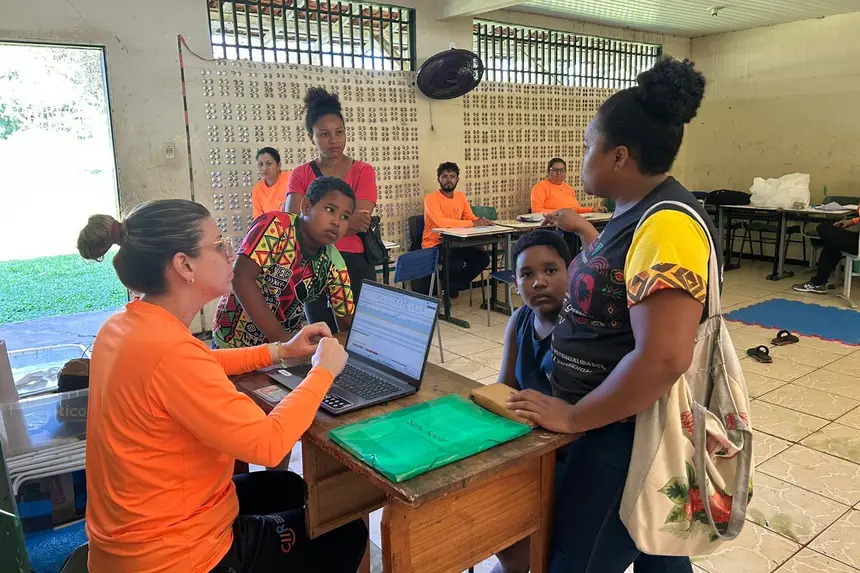
The first community served in this stage was Quilombo África, on May 27. On Tuesday (28), the action reached the Mojum Mirim community, and the next stop will be this Wednesday (29), in the Cruzeiro community.
Care
Already on the first day of activities, the numbers show the impact of the action: 57 medical consultations, 75 consultations, 259 laboratory exams performed, and 676 medications dispensed. There were also 44 lectures on oral health, with the distribution of oral hygiene kits, in addition to two referrals made by the team from the State Coordination of Strategic Policies in Rights (CEPED).
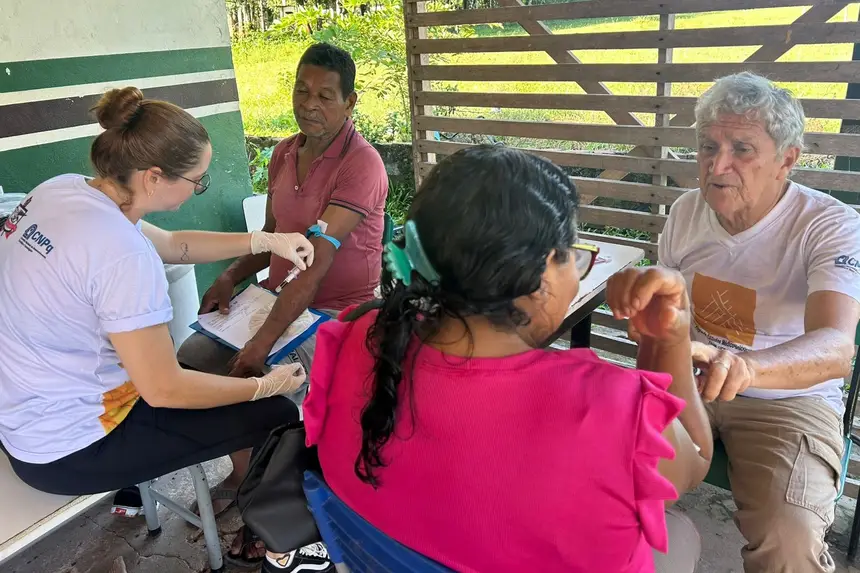
The Integrated Center for Inclusion and Rehabilitation (CIIR) participated with a multiprofessional team, totaling 22 specialized consultations in the areas of psychopedagogy, psychology, speech therapy, physiotherapy, nutrition, occupational therapy, and social work. Referrals were also made for otolaryngology, neuropediatrics, pediatrics, ophthalmology, physiatry, and dentistry.
According to Lorena Alves, a technician from CESIPT, the planning was built based on the demands presented by the quilombola communities themselves.
"The main objective of the action promoted by Sespa is to fulfill the commitment term signed in November 2024, in partnership with SEIRDH. Since then, we have set up a calendar for 2025 in quilombola territories, built in a dialogued manner with the communities," she highlighted.
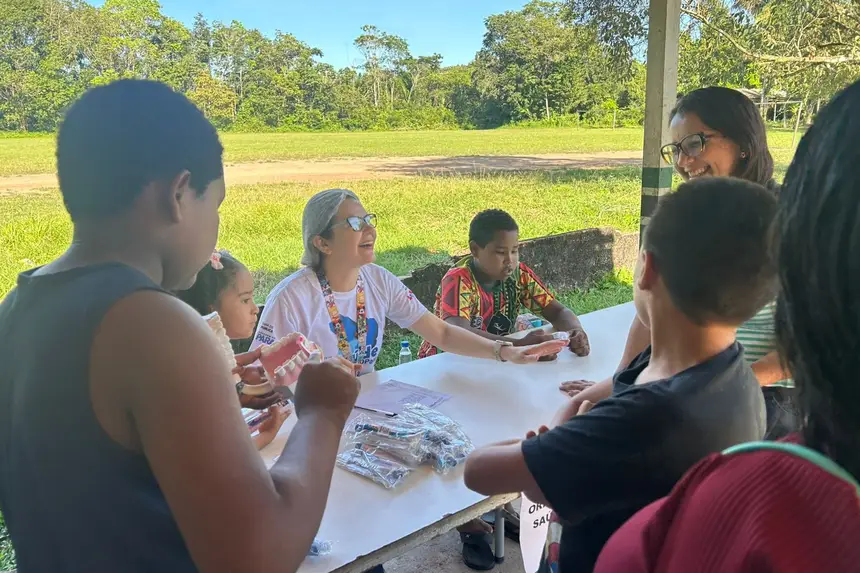
Care that reaches where it is most needed
Resident of Quilombo África and the Laranja Tuba community, Miriam Cardoso reported the positive impact of the action, especially for those facing daily obstacles to access health services.
"I sought care with a general practitioner and gynecologist, as it is close to home and convenient. Most of the time, we have a lot of difficulty getting to the city, sometimes we need to return just to do an exam. The action came to the community and was a great opportunity to do the exams I already needed. Here we have people facing cancer, we have already lost relatives due to delays in diagnosis. This action was the result of our struggle with the leaders. We met several times, organized everything to bring this action to us. It is gratifying to see that it worked out."
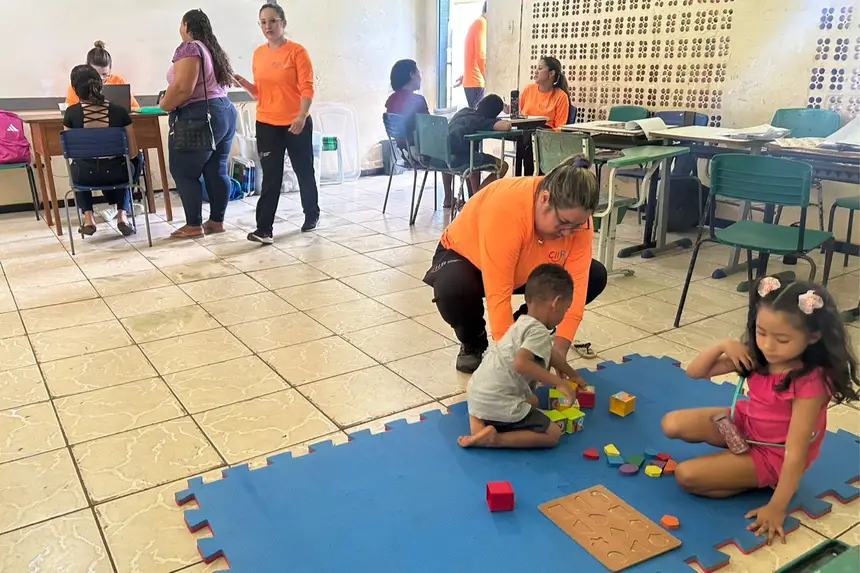
Next steps
The next community to receive the action will be the Cruzeiro Community, this Thursday (29). The expectation is that new editions will occur in other municipalities throughout the year, reinforcing the commitment of the Government of Pará to more accessible health that respects the specificities and rights of traditional peoples.


